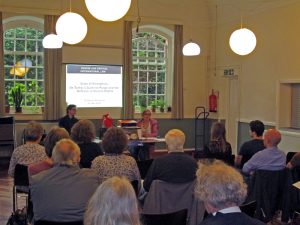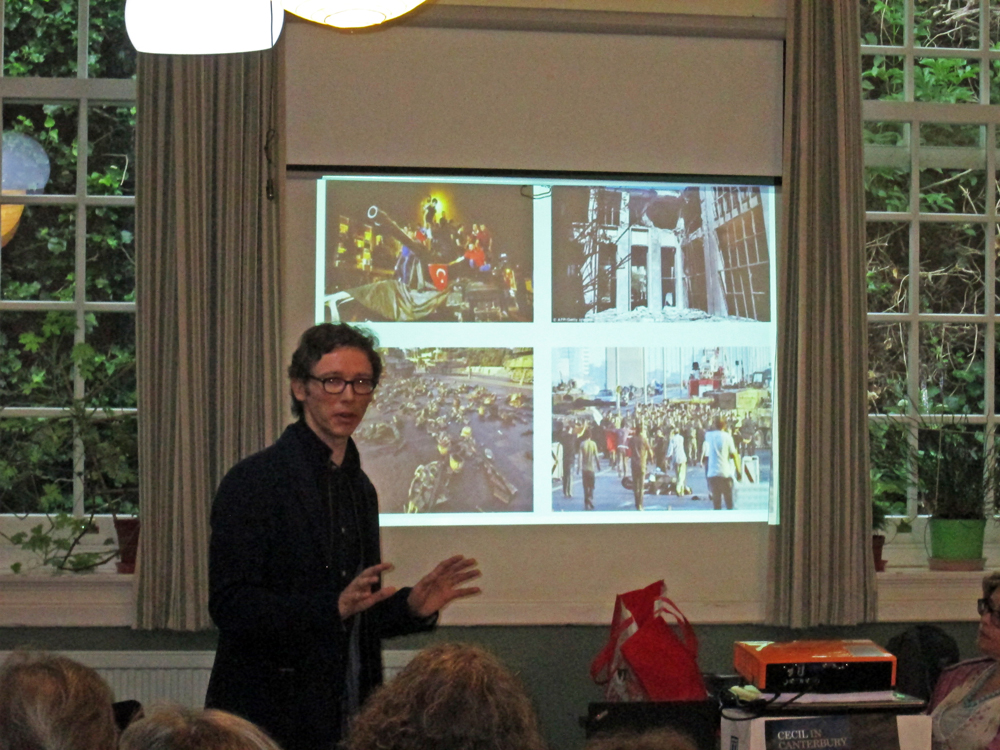A report by Eric Loefflad on a talk by Dr Darren Dinsmore for the Kent Centre for Critical International Law (CeCIL)
CeCIL hosted its final event of the 2016-17 academic year with a fascinating talk by Dr Darren Dinsmore entitled ‘State of Emergency: On Turkey’s Gülenist Purge and the Defence of Human Rights.’
The event on 31 May also happened to be the third instalment of this year’s new ‘CeCIL in Canterbury’ lecture series whereby Kent Law School academics engage the public through presentations of their research connected to important contemporary international issues in a space generously provided by the Friends Meeting House.
As an expert on the application of human rights and humanitarian law to the phenomenon of Kurdish social movements within Turkey, Darren was certainly apt in placing the current situation in Turkey in its broader historical, political and legal context. In particular, he focused on the legal implications of the state’s crackdown on the followers of the cleric Fethullah Gülen who is widely blamed for the attempted coup that rocked Turkey in 2016. As Darren explained, this situation presents many difficulties when it comes to the balancing of national security issues and individual human rights. Furthermore, from the perspective of human rights defenders, the situation is complicated by labyrinthine questions as to what are the appropriate roles for different institutional bodies both within and outside the Turkish state (especially the European Court of Human Rights)? While Darren was clear about just how complex and frustrating this situation can be, he also noted instances of success that should encourage tireless advocacy despite the presence of very real adversities.

This event was very well attended by a diverse audience that included many members of the local Canterbury community in addition to students and staff from Kent Law School. Such a richness of perspectives led to a stimulating question and answer session where many of Darren’s points were explored in greater detail. All of that said, Darren’s lecture formed an eminently fitting conclusion to an excellent and engaging year of ‘CeCIL in Canterbury’ events that began with Dr Sophie Vigneron’s discussion of cultural heritage destruction from the Byzantine Empire to the contemporary Middle-East and continued with Professor Nick Grief’s account of his experience litigating the question of nuclear weapons before the International Court of Justice. Thus, this year’s public events were instrumental in shaping a model of community engagement that is poised to become a cornerstone of the work CeCIL does. For as world events continue to defy our conventional understandings at an increasing rapid pace, explanation and the invitation to discussion in an open forum by those who have spent significant time researching these issues is a demonstrable public good. Once again, we cannot thank the Friends Meeting House enough for providing the space that made this engagement possible.

